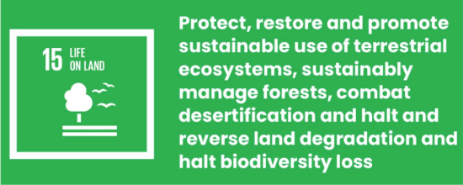
Join our Beta Community!
Thank you for your interest. Register here for the latest updates.
Your email is safe with us. We won't spam.

Wales, United Kingdom
Coed Rhyal, a 13.33 acre woodland of mature oak, occupies a north west facing slope that looks out over Carmarthen Bay. A stone’s throw from Burry Port this delightful woodland is almost pure, old oak with a floor adorned with a carpet of bluebells in the spring and early summer months.

The closed canopy of the oak casts a shadow on the characterful woodland habitat that lies beneath the leaf cover. With honeysuckle climbers, bilberry, primrose and ferns, Coed Rhyal is an ecological gem. The woodland contains extensive fallen and standing deadwood as well as mature trees with extensive cavities, which are also a valuable ecological resource.

There is a patchy lower canopy of holly and hazel typical of oak woodlands. Where the canopy breaks, a stunning outlook offers a feast for the eyes with views of distant land and water. A seasonal stream trickles down the northeast boundary. This pristine woodland is in the midst of the coal mining industry that was once a thriving industry in the area.


The property has been surveyed by Carter Jonas (founded in 1855), a leading UK estate management firm. The freehold purchase was facilitated by DWF, a leading global provider of integrated legal and business services. Please visit our disclosure section for their detailed reports.

This approach is in line with the ethos of (United Nations Sustainable Development Goals) UN SDG 15 and also serves the objectives of the United Nations Decade on Ecosystem Restoration (2021-2030).



Why an ancient Welsh woodland is perfect for drinking in a little ‘green peace’ 😊
Carmarthen Bay in West Wales is much loved for its broad, peach-white sands, its migratory birdlife and its sweeping sand and mud flats and salt marshes. It’s the birthplace of the Arthurian legend of the magician Merlin and one of the landscapes that inspired celebrated Welsh poet Dylan Thomas. In 2009, the UK’s Joint Nature Conservation Committee listed Carmarthen Bay and Estuaries as a Special Area of Conservation, for the presence in the Bay of and its saltmarshes of sea rush (Juncus maritimus) and marsh-mallow (Althaea officinalis), rare invertebrates and the twait shad (Alosa fallax), a threatened migratory fish.

We love to hear about other people who are striving to make a positive difference to our planet. We hope you enjoy reading them.